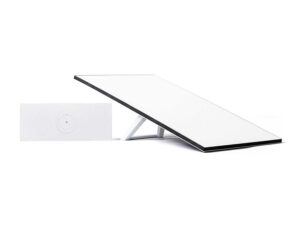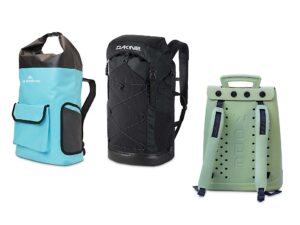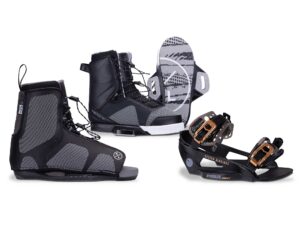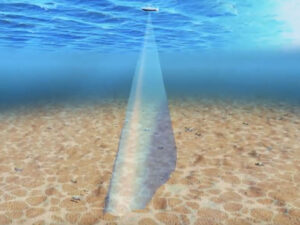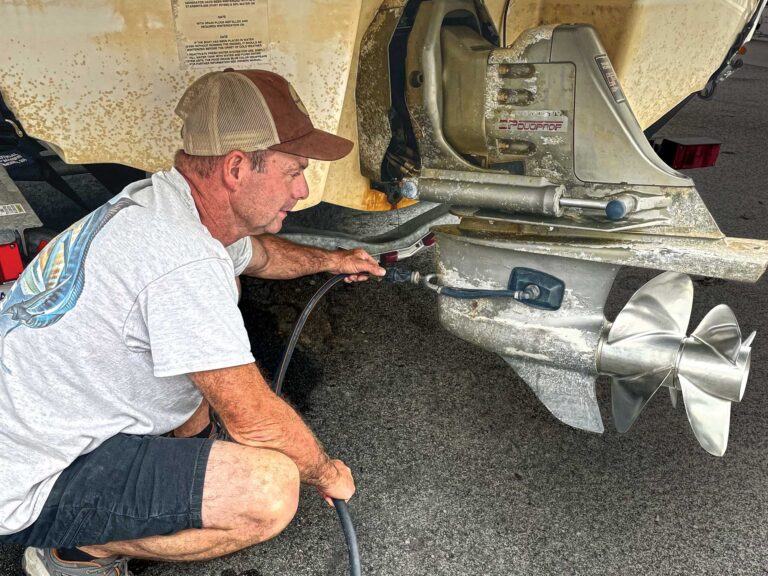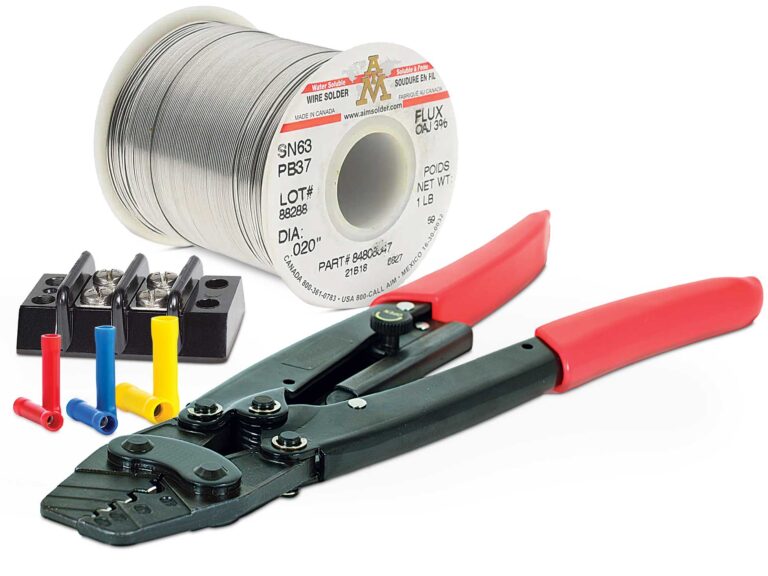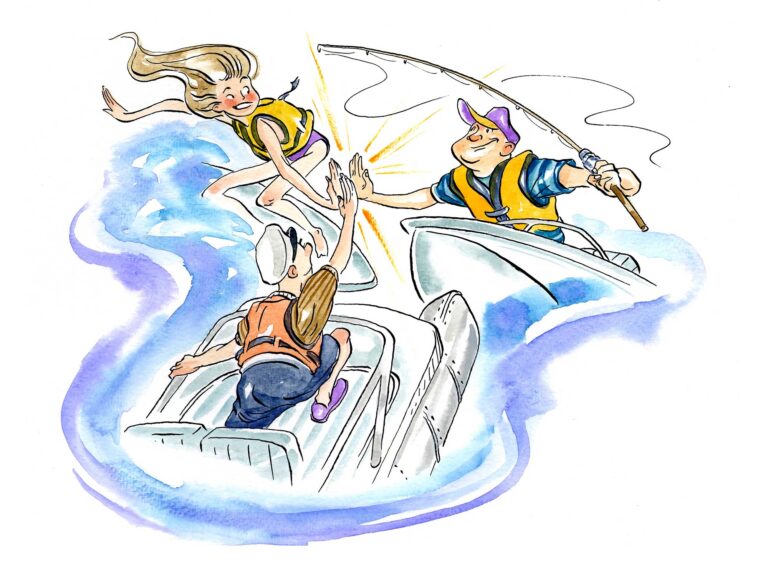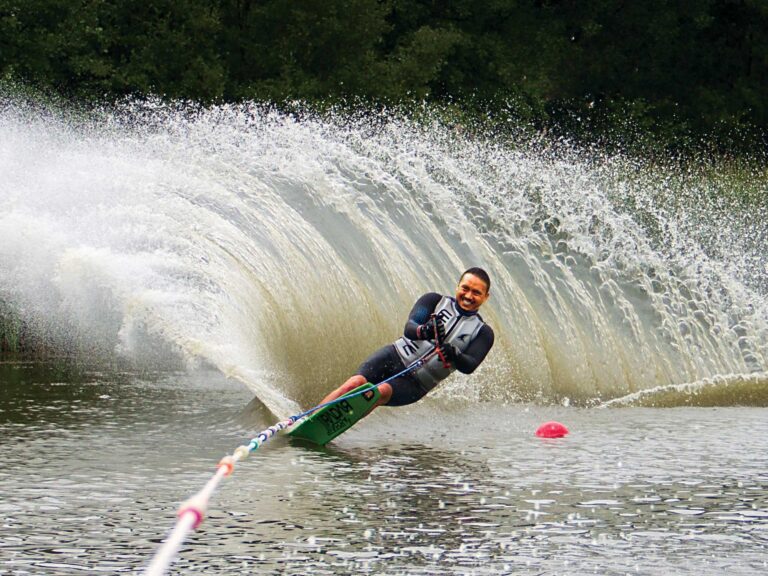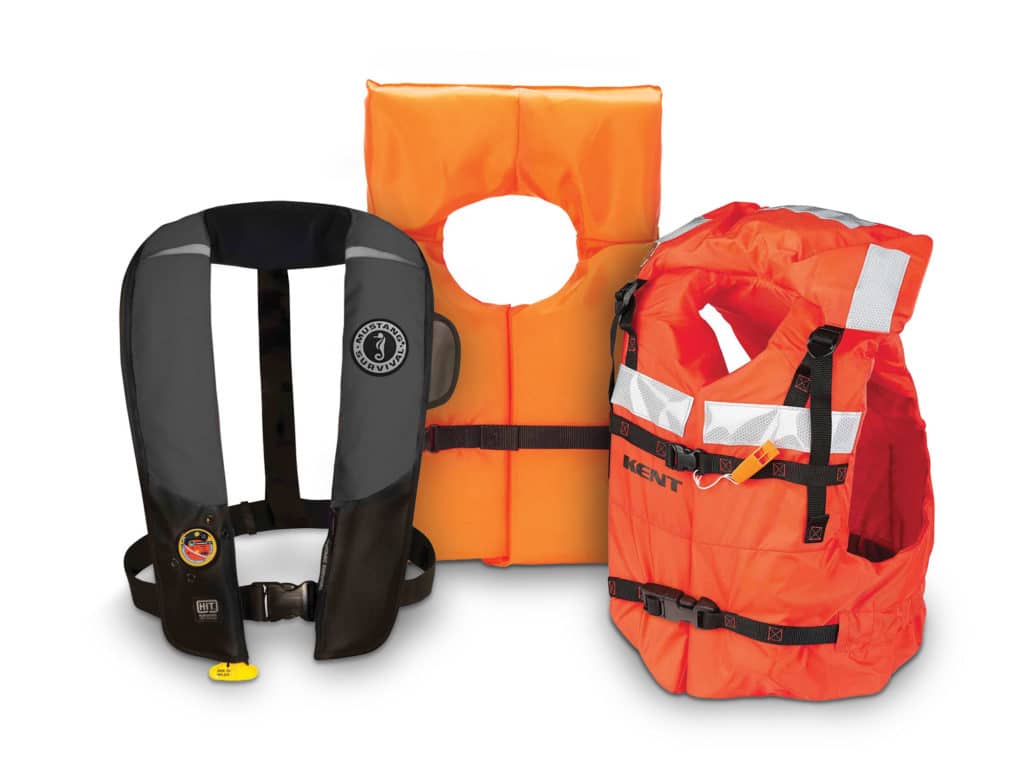
Life jackets might be the most important safety gear you can have on board for you and your crew. But what type of life jacket do you need? There are three types of inherently buoyant life jackets designated by the US Coast Guard. (There’s also Type IV, which are throwable PFDs; Type V are special use.) Here’s a brief rundown of the basics of Type I, Type II and Type III life jackets.
Type III: Mustang Hydrostatic HIT Inflatable
The Float: Type III jackets meet most recreational needs. They can be foam, but our edit staff prefers Type III inflatable PFDs such as the Mustang Hydrostatic HIT. (Automatically inflatable PFDs might also rate as Type III.) They’re comfortable to wear, which we do on our boat tests, and are easily inflated should you fall into the water.
The Catch: Type III inflatables are intended for recreational use in areas where rescue efforts can come quickly, and they are not required to rotate a user from a face-down position.
Price: $249.99; basspro.com
Type II: EXXEL Outdoors Type II
The Float: Almost all of the life jackets packed into one of those Coast Guard kits is an inexpensive Type II with a bulky collar, such as this from Exxel Outdoors. They are an easy and inexpensive way to meet Coast Guard requirements for your boat. They do not have as much buoyancy as Type I jackets and can rotate some, but not all, wearers from a face-down position.
The Catch: These basic life jackets are notoriously uncomfortable to wear and intended for use when rescue efforts can be done fairly quickly.
Price: $9.99; westmarine.com
Read Next: Wear Your Lifejacket
Type I: Kent Type I Foam
The Float: According to the Coast Guard, Type I life jackets, such as this one from Kent, have the greatest required inherent buoyancy and should work to rotate an unconscious person out of a face-down position in the water. These are preferred for offshore situations where rescue efforts might take considerable time because they’re designed to keep people afloat and able to breathe for long periods in the water.
The Catch: Type I life jackets are known to be bulky and can be uncomfortable to wear for long stretches of time on deck.
Price: $59.99; westmarine.com
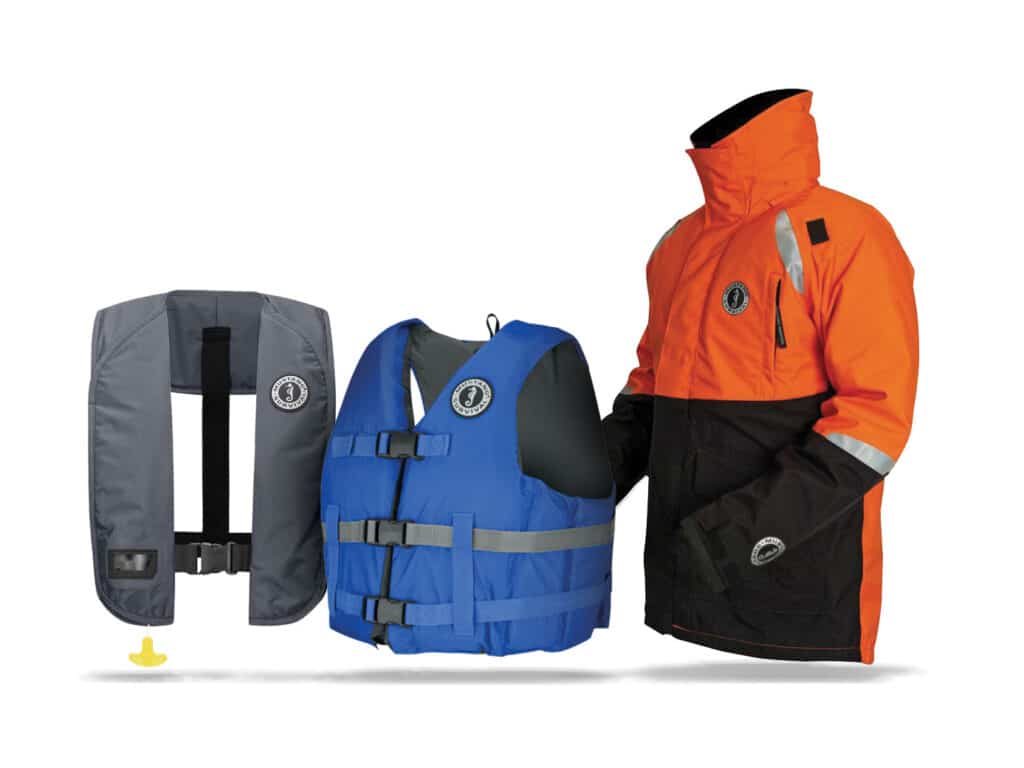
Beyond the Basics
While any life jacket is better than no life jacket, some styles work better than others, depending on the task at hand. Watersports enthusiasts benefit from snug, secure protection. Recreational boaters may prefer a less-restrictive feel. And then there are those who need flotation and protection from the elements. Here’s a comparison of three choices tailored to specific needs.
Recreational: Mustang MIT 100 Automatic Inflatable PFD
Why Get: A minimalist suspender design and lightweight, pliable air bladder combine for one of the most comfortable, unobtrusive PFDs on the market. Adjust the waist buckle to accommodate additional layers (or that beer belly). Verify the CO2 cartridge is armed via a clear inspection window. Automatic inflation upon water immersion guarantees the jacket will activate, even if the wearer is freaked out or unconscious. Buoyancy is 28 pounds.
All Wet: Unlike foam-filled PFDs, the jacket must be rearmed with a fresh CO2 cylinder before next use once inflated.
Price: $169.99; westmarinel.com
PWC/Watersports: Mustang Livery Foam Vest
Why Get: With a flexible foam core and durable 300D polyester shell, the Livery provides flotation and impact protection for activities like PWC riding, wakeboarding and water-skiing. Large armholes allow for flexibility, while the front-entry design makes for easy donning and removal. A trio of buckled web straps secures the vest and fine-tunes the fit; a contrasting middle strap avoids inevitable mix-ups when strapping in. Buoyancy is 22.5 pounds.
All Wet: Aggressive types may prefer additional length in the torso and a more body-hugging fit.
Price: $49.99; amazon.com
OffSeason: Mustang Catalyst Flotation Jacket
Why Get: Mustang’s Catalyst manages a trifecta, combining closed-cell foam flotation with the warmth and protection of a foul-weather jacket. The breathable, laminate outer shell is waterproof to almost 11 yards. Zippered underarm vents provide additional airflow. Reflective accents on the body and integrated hood keep the wearer visible. Stow gear in a choice of a zippered chest pocket and two front cargo pockets. Buoyancy is a minimum of 15.7 pounds.
All Wet: Best when paired with matching flotation bibs, making for a slightly pricey combo.
Price: $368.13; amazon.com

